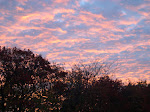|
Ramsey County Sheriff Bob Fletcher declared September 24 that the city of St. Paul endured "eight hours of chaos and mayhem" and that if police had not acted forcefully, "this town would have been destroyed" on September 1, the first day of the Republican National Convention. (St. Paul Pioneer Press, 9/25/08; Star Tribune, 9/29/08)
These uncritical reports of Sheriff Fletcher's news conference show a failure of reporting. Instead of simply repeating the sheriff's heated rhetoric, journalists need to look for evidence and report whether his statements are accurate.
One example illustrates the need for more careful reporting. According to the St. Paul Pioneer Press article, Fletcher said that police had shown great restraint and that officers in riot gear were not deployed until about 3 p.m. I was on the streets of downtown St. Paul by early afternoon on September 1. So were hundreds of other journalists, and hundreds of police in riot gear. I have videos and photos of police in riot gear lining the streets at 12:30 p.m. I am willing to bet that Star Tribune and Pioneer Press photographers do, too.

Photos from my video at 7th and St. Peter at approximately 12:30 p.m. on September 1
Sheriff Fletcher apparently missed the riot gear deployment. If he is wrong--by three hours--about when police in riot gear were deployed, then what else is he wrong about? That's a basic question that the media need to ask and answer. Our job is to ask questions and find the truth, not to uncritically report the words of public officials.
Chaos and Mayhem?
What, exactly, is the "chaos and mayhem" that Sheriff Fletcher is talking about? What, exactly, is the "extensive damage to the city" that the Star Tribune editorial page (9/3/08) said was justification for "an appropriate show of police force"?
I have seen no reports of injuries to police or convention delegates, only of injuries inflicted by police on protesters, journalists and bystanders. Police booking records reveal no reports of guns fired or bombs exploded. News stories tell of half a dozen broken windows, maybe a dozen cars with flat tires, and miscellaneous damage to trash containers and newspaper boxes.
After the convention, the Minnesota Daily (9/8/08) talked to U of M police chief Greg Hestness, who had four officers detailed to the RNC. According to the report, "Hestness said the RNC protests were far tamer in his opinion than the protests following the 2003 Gopher hockey riots when 'strictly alcohol-fueled' students took to the streets starting fires and causing damage all over the University."
Of the 280-plus people arrested on September 1, only three were booked on charges of criminal damage to property. Of the 700-plus people arrested in St. Paul during the RNC, only 13 have been charged with felonies committed during the four days of the convention. (Eight more -- the RNC Eight -- were jailed before the convention on charges of "conspiracy to riot in furtherance of terrorism.")
Challenge to the media
When the media reports--and we should report--that Sheriff Fletcher claims to have saved the city of St. Paul from destruction, then we also need to report facts that enable the public to decide whether or not they believe him.
At the Twin Cities Daily Planet, part of our mission is to dig for enough facts to raise challenging questions. I wish we had a research staff to dig deeper and get all of the answers, but we do not. I think the big guys -- the mainstream media -- should be assigning researchers and reporters and digging deeper for information such as:
• Who was injured during the RNC and what were the injuries?
• Exactly what property damage occurred?
• How many people were arrested, and what happened to each of them?
• What was the command structure of the security forces assembled for the RNC? What was the role of the FBI and the Department of Homeland Security?
• What was seized in searches of residences and the Convergence Center during the pre-emptive raids before the RNC?
• What residences have been searched AFTER the RNC, and what has been seized in these residences?
At a minimum, raising the questions lets people know that the full story has not been told. But the mainstream media has an opportunity to do much more. They have the opportunity -- and the resources -- to reclaim journalism's role of finding and speaking truth, rather than acting as stenographers for power.
Mary Turck is the editor of the Twin Cities Daily Planet.




No comments:
Post a Comment